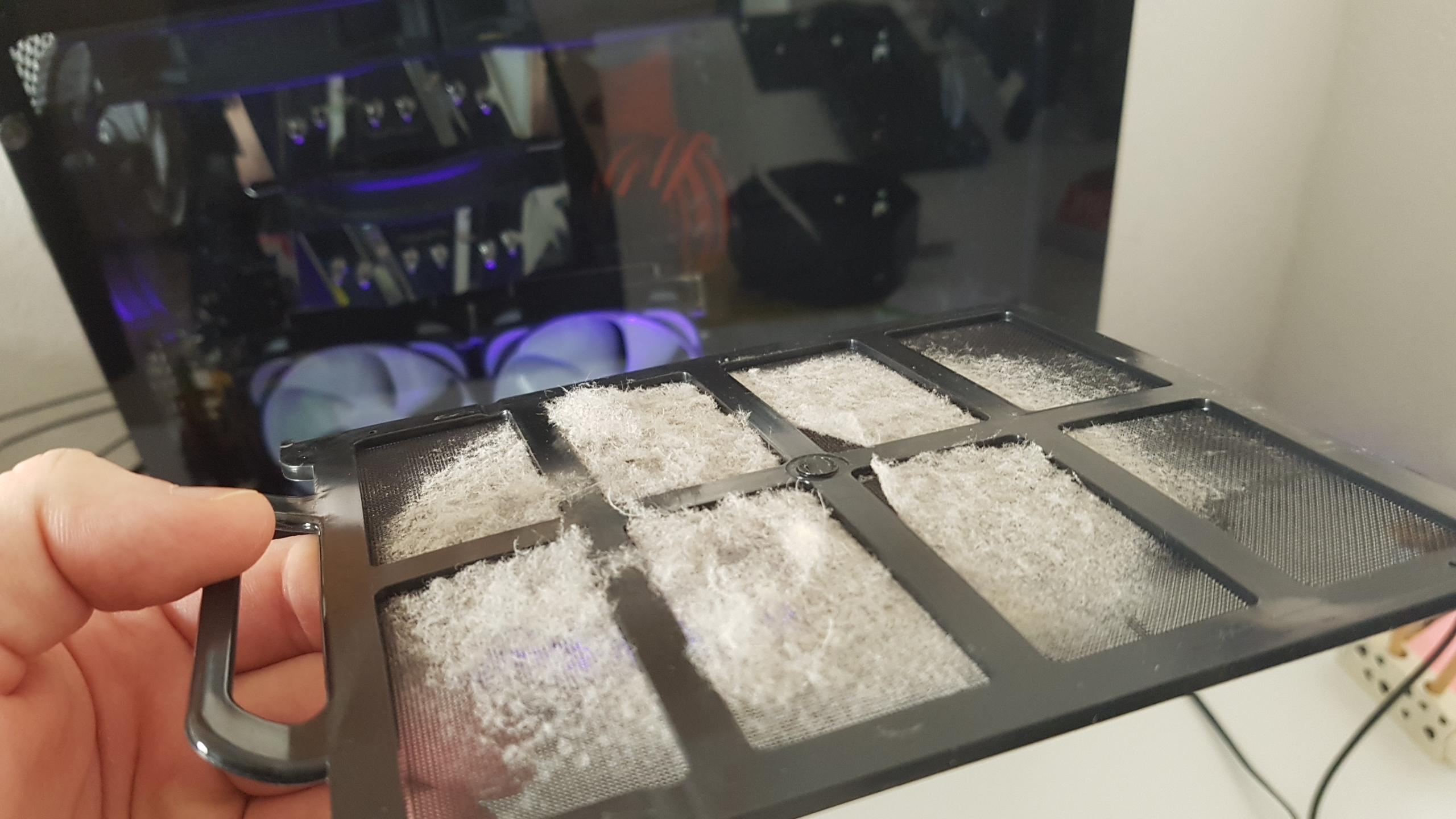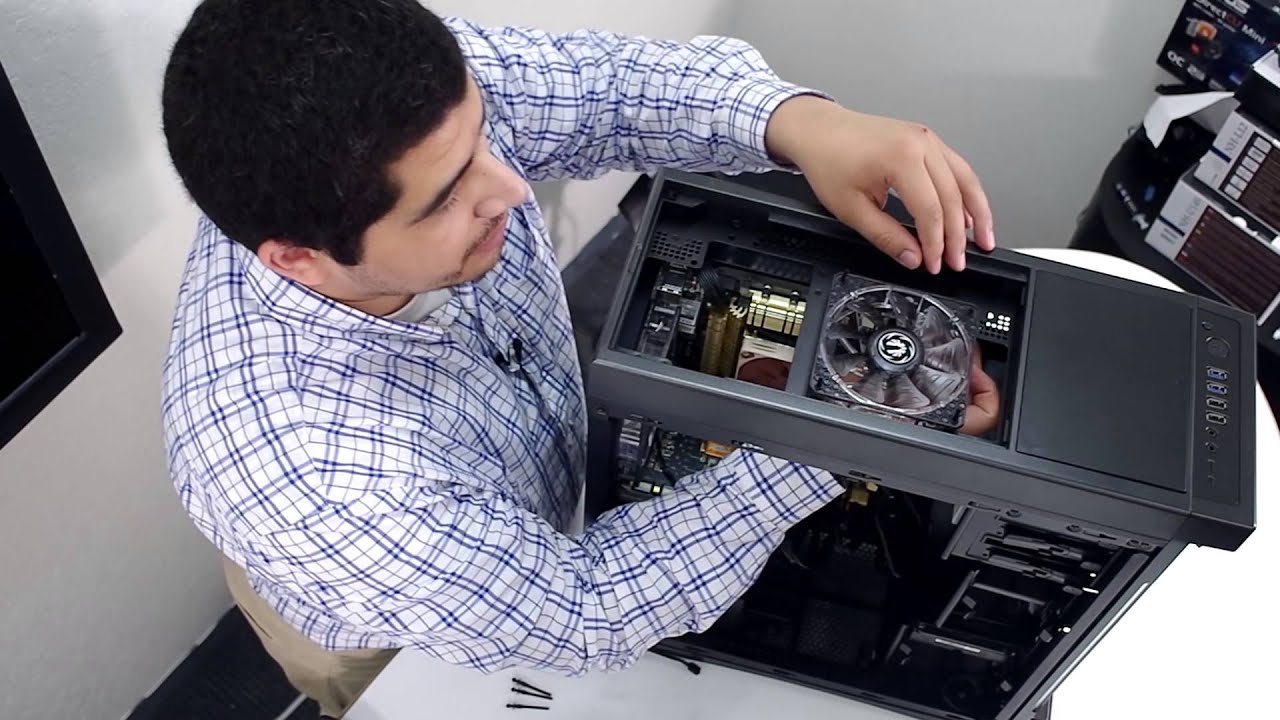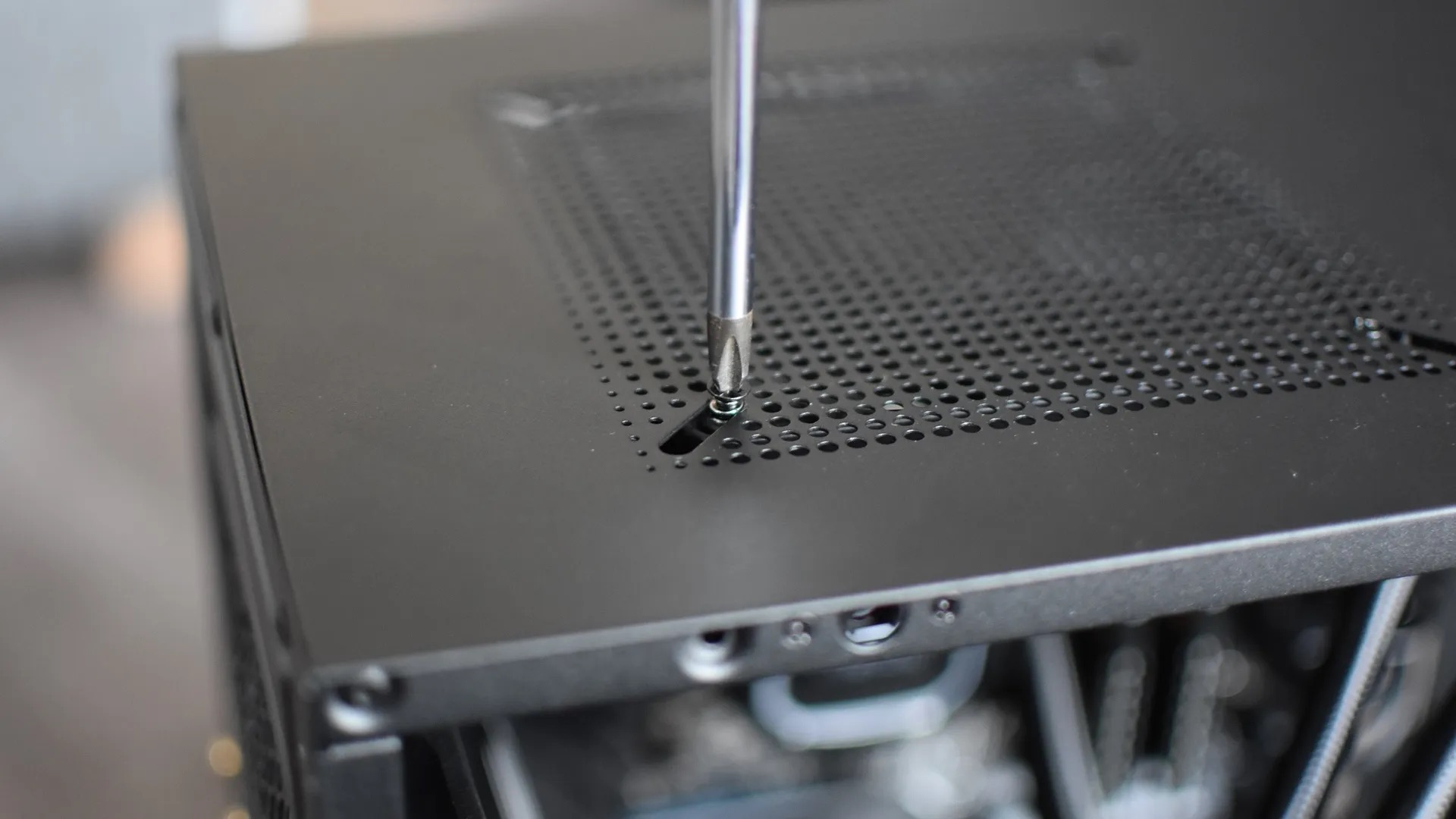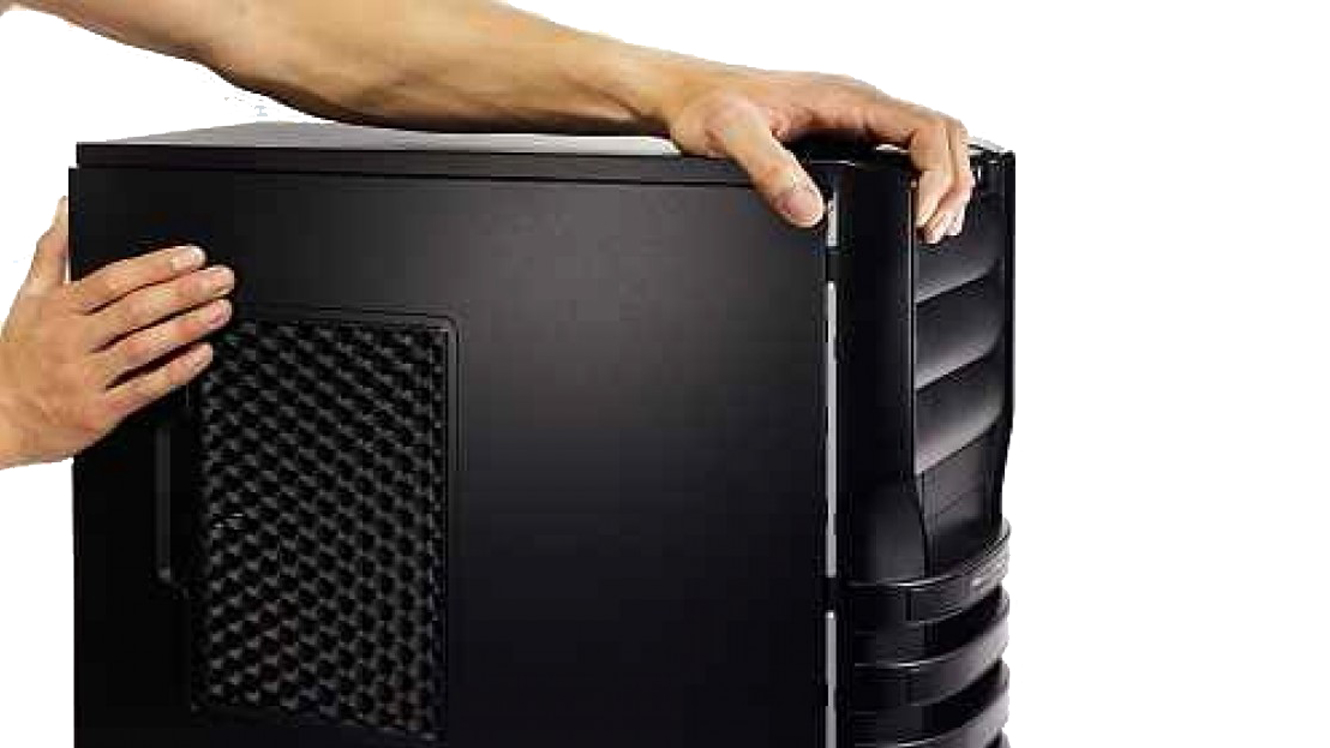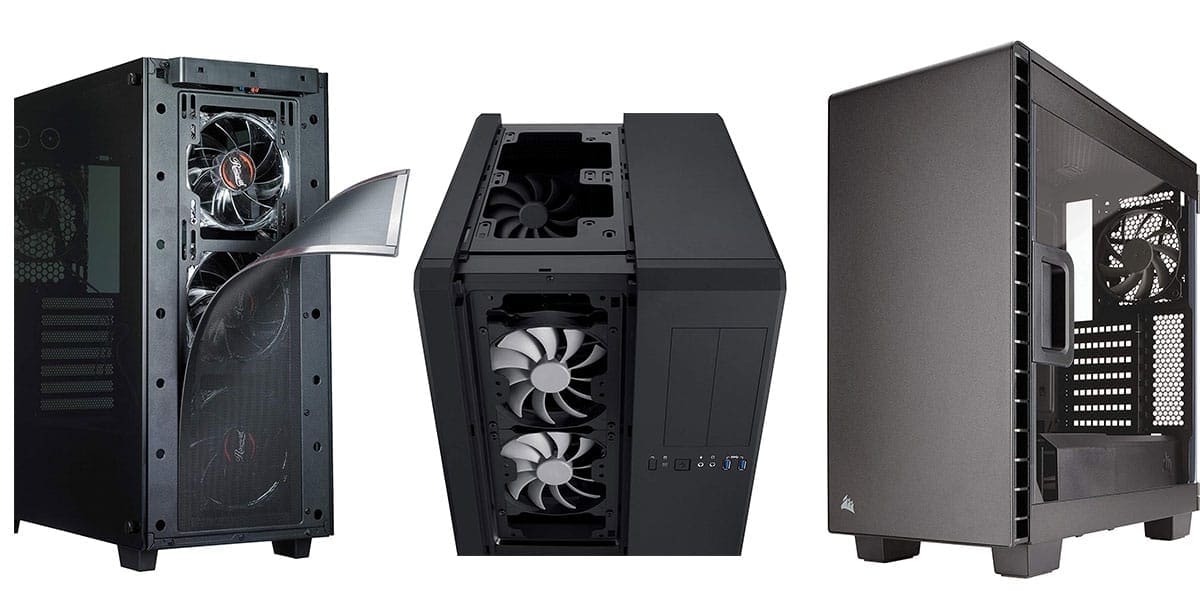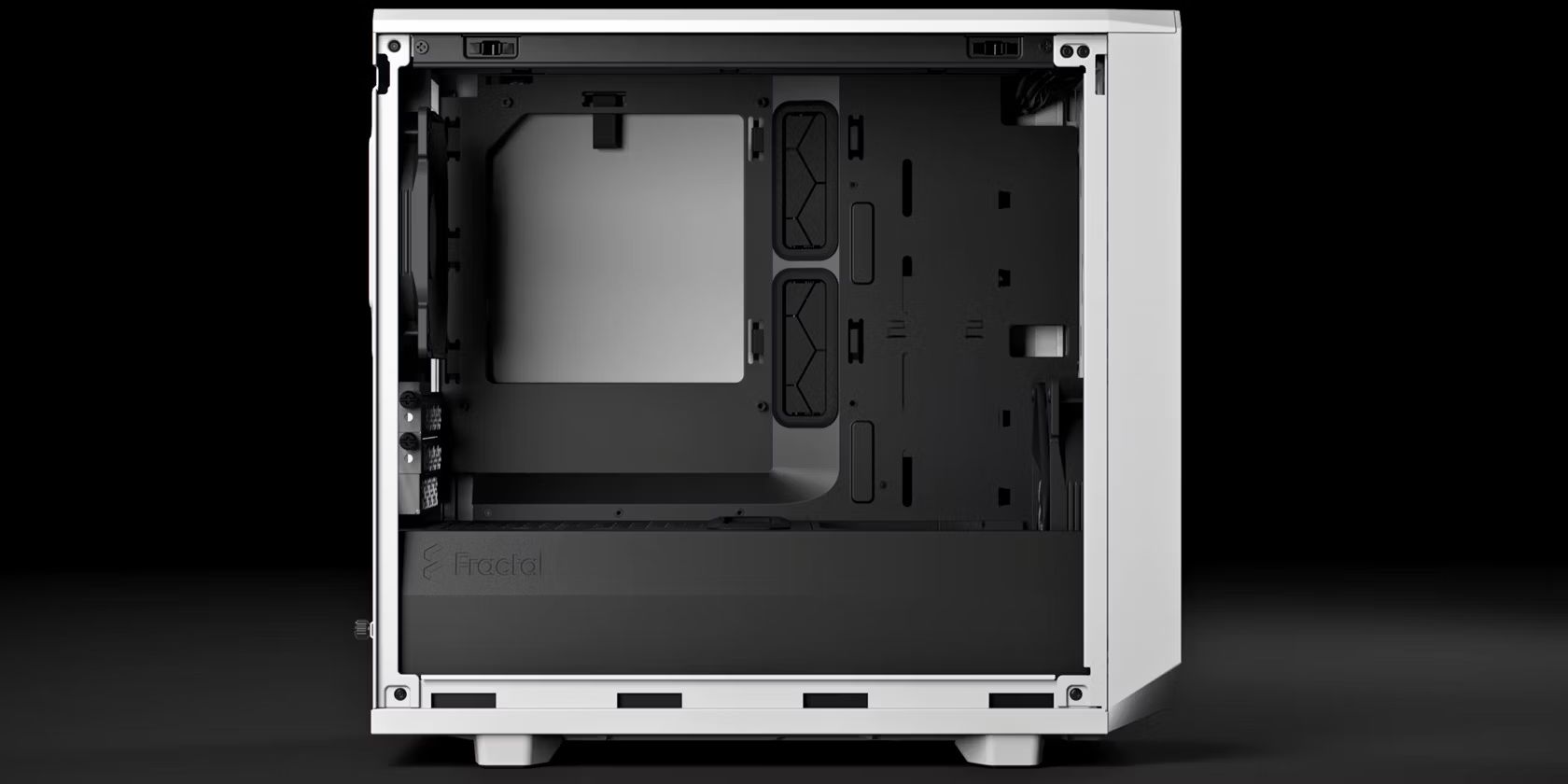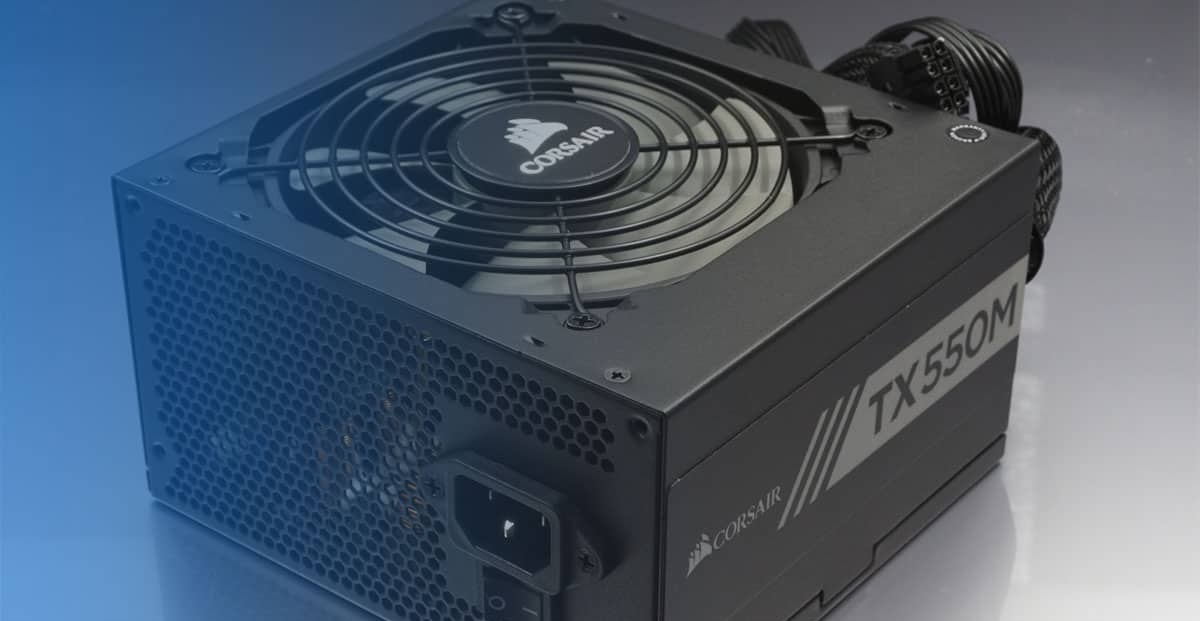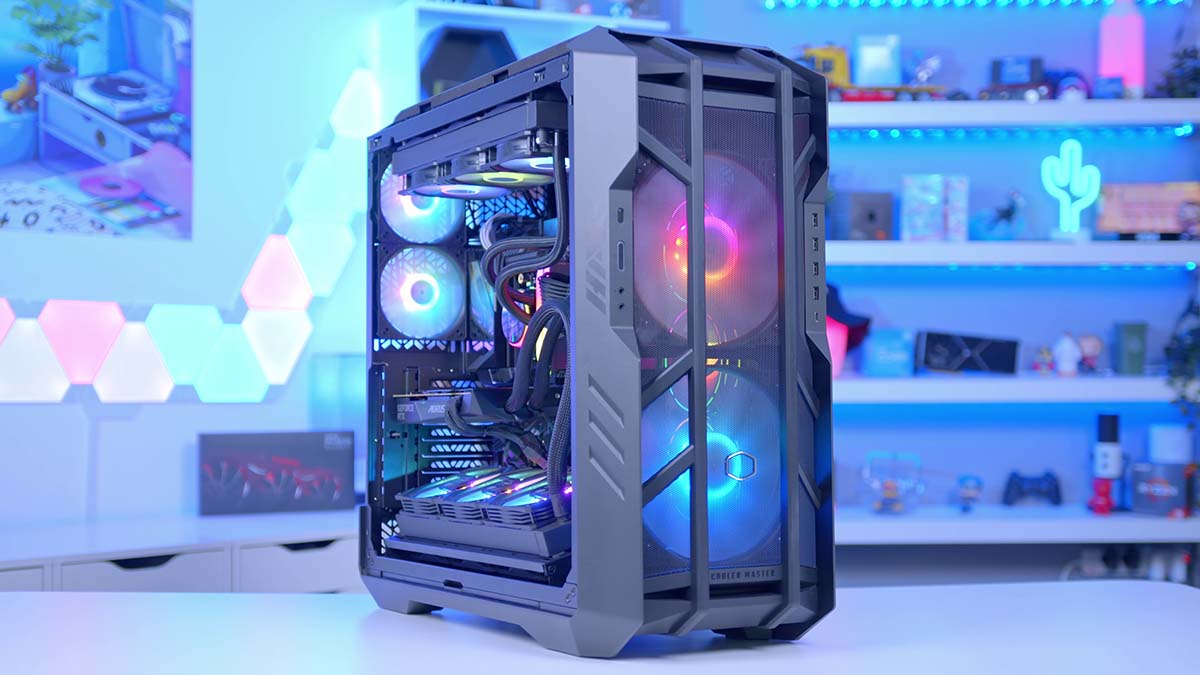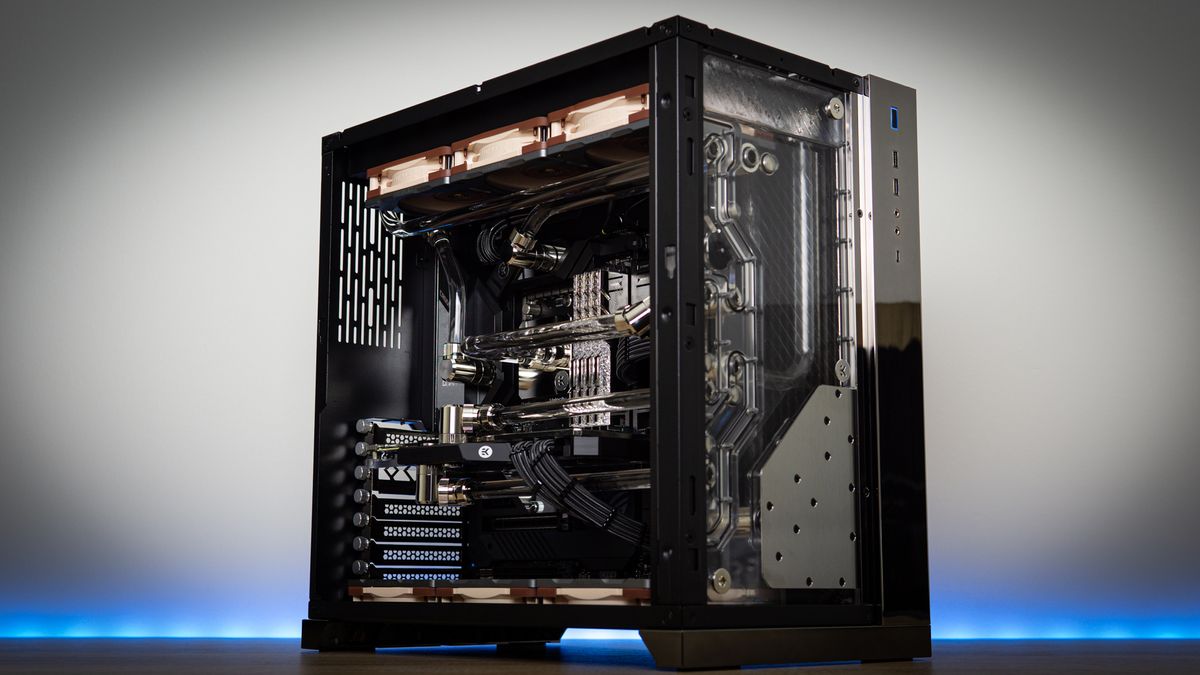Introduction
Welcome to the world of computer hardware, where every component plays a crucial role in ensuring optimal performance. One often overlooked component is the Power Supply Unit (PSU) filter. Placed on the bottom of a PC case, this small but mighty accessory serves a vital purpose in protecting your computer from dust and debris.
When it comes to building a PC, many enthusiasts focus on selecting the best CPU, graphics card, or storage options. While these components are undoubtedly important, it’s equally essential to pay attention to the overall case design and its features. The presence of a PSU filter is one such consideration that can greatly impact your system’s longevity and performance.
But what exactly is a PSU filter, and why is it necessary? In this article, we will explore the importance of this often underrated component, discussing how it prevents dust build-up, improves airflow and cooling, and ultimately prolongs the life of your PC components.
So, if you’ve ever wondered why there’s a PSU filter on the bottom of your PC case, keep reading to discover the answer and learn how to properly maintain it.
What is a PSU Filter?
A PSU filter, short for Power Supply Unit filter, is a mesh or fabric material placed on the bottom of a PC case to prevent dust and debris from entering the power supply unit. It acts as a barrier, filtering out particles that can potentially hinder the PSU’s performance and affect the overall cooling efficiency of the system.
The filter is typically made of materials like foam, nylon, or magnetic mesh, designed to trap dust particles while allowing sufficient airflow to keep the components cool. It is strategically positioned at the base of the PC case, as it is here that most of the dust tends to accumulate over time.
The primary function of a PSU filter is to ensure that the power supply and other delicate components inside the case remain clean and free from contaminants. By preventing dust and debris from entering the system, the filter helps maintain optimal performance and prolongs the lifespan of the PC components.
PSU filters come in various shapes and sizes, depending on the case design and the manufacturer’s specifications. Some cases may have a built-in filter that can be easily removed for cleaning, while others may require removing the entire bottom cover to access and clean the filter.
Overall, the PSU filter serves as a vital protective layer for your PC, keeping harmful particles at bay and ensuring the longevity and efficiency of your system.
Importance of a PSU Filter
The presence of a PSU filter may seem like a small detail, but its importance should not be underestimated. Let’s explore why this component plays a crucial role in maintaining the health and performance of your PC.
Preventing Dust Build-up: One of the primary functions of a PSU filter is to prevent dust and debris from entering your PC case. Dust is a common enemy of electronics, capable of clogging vents, obstructing airflow, and causing components to overheat. By trapping dust particles before they can enter the power supply and other sensitive areas, the filter helps keep your system clean and maintain optimum performance.
Improving Airflow and Cooling: Efficient airflow is essential for keeping your PC components cool and preventing overheating. A clogged or obstructed system can lead to thermal issues, decreased performance, and even hardware failure. The PSU filter allows fresh air to flow into the case while filtering out dust particles. This promotes a healthier airflow pathway, ensuring that components stay within proper temperature ranges and perform optimally.
Prolonging the Life of your PC Components: Dust is not just an inconvenience; it can have long-term detrimental effects on your PC’s internal components. Over time, dust build-up can cause components like fans, heatsinks, and circuit boards to deteriorate. Excess heat and reduced airflow can also put stress on your power supply, potentially shortening its lifespan. By keeping dust at bay, a PSU filter helps protect your hardware investment and ensures that your PC runs smoothly for years to come.
Quieter Operation: Dust not only impacts the performance and lifespan of your PC components but can also contribute to increased noise levels. When dust accumulates on fans and heatsinks, it can cause them to operate less efficiently, resulting in louder and more obtrusive noise. With a properly installed PSU filter, you can maintain a quieter operating environment by minimizing excessive dust build-up on these components.
Easier Maintenance: Regular maintenance is essential for keeping your PC in optimal condition. The presence of a PSU filter simplifies this process by containing dust to a specific area. Cleaning or replacing the filter periodically is much easier and less time-consuming than trying to remove dust from every nook and cranny of your PC. This convenience allows for quicker and more efficient maintenance, prolonging the lifespan of your components.
With the numerous benefits it offers, a PSU filter is a small investment that yields significant returns. By preventing dust build-up, improving airflow and cooling, prolonging component life, reducing noise levels, and simplifying maintenance, the filter ensures a cleaner, cooler, and more efficient PC environment.
Preventing Dust Build-up
Dust is the nemesis of electronics, and keeping it at bay is crucial for optimal PC performance. A PSU filter is a powerful tool in the battle against dust build-up. Let’s explore how it accomplishes this important task.
Filtering Out Dust Particles: The primary purpose of a PSU filter is to act as a barrier, preventing dust and debris from entering the PC case. As air is drawn into the case through the filter, the mesh or fabric material traps the dust particles, preventing them from settling on the components inside. This ensures that the power supply unit and other sensitive parts remain clean and free from dust.
Minimizing Airborne Dust: Dust particles are not only present on surfaces but are also suspended in the air. These airborne particles can easily enter the PC case through any available opening, leading to dust accumulation. By having a PSU filter in place, you greatly reduce the amount of airborne dust that can find its way into your system. The filter acts as a physical barrier, capturing these particles and preventing them from settling on your PC components.
Protecting Sensitive Components: Dust can be particularly harmful to delicate components such as fans, heatsinks, and circuit boards. When dust settles on these parts, it obstructs airflow and thermal dissipation, leading to increased temperatures and potential performance issues. By using a PSU filter, you create a barrier that stops the majority of dust from reaching these components, maintaining optimal airflow and reducing the risk of damage due to high temperatures.
Reducing Cleaning Frequency: Without a PSU filter, dust would accumulate freely within the PC case, requiring more frequent and extensive cleaning. However, with the presence of a filter, a significant portion of the dust is captured and contained before it can settle on the components. This means that cleaning intervals can be extended, reducing the time and effort required to keep your PC free of dust.
Prolonging Component Lifespan: Dust build-up can have a detrimental impact on the lifespan of your PC components. Excessive dust may cause fans to operate inefficiently, leading to increased wear and tear. It can also insulate components, trapping heat and causing them to malfunction or fail prematurely. By preventing dust build-up, a PSU filter helps protect your components from these hazards, allowing them to operate under optimal conditions and prolonging their lifespan.
By functioning as a barrier against dust particles and minimizing airborne dust, a PSU filter plays a vital role in preventing dust build-up in your PC. It not only protects sensitive components but also reduces the need for frequent cleaning, ultimately enhancing the overall performance and longevity of your computer.
Improving Airflow and Cooling
Proper airflow and cooling are essential for maintaining optimal performance and preventing overheating in a PC. A PSU filter plays a significant role in improving these critical aspects. Let’s explore how it contributes to better airflow and cooling within your computer system.
Unobstructed Airflow Pathway: A PC case with a PSU filter is designed in such a way that the filter is strategically placed at the bottom, allowing cool air to be drawn into the case. As the air passes through the filter, it is cleaned of dust particles before circulating through the case and cooling the components. By preventing dust from entering the system, the filter ensures that the airflow pathway remains unobstructed, maximizing the efficiency of the cooling process.
Promoting Proper Ventilation: Oftentimes, PC cases are designed with specific airflow patterns in mind, utilizing fans and vents to facilitate proper ventilation. However, if these openings become clogged with dust, ventilation can be compromised, leading to poor cooling performance. With a PSU filter in place, dust is trapped before it can reach the fans and vents, maintaining unobstructed airflow and allowing the cooling system to function optimally.
Reducing Dust Accumulation on Components: Dust accumulation on components such as fans, heatsinks, and circuit boards can hinder their performance and lead to increased operating temperatures. When a PSU filter is utilized, it prevents a significant portion of airborne dust from settling on these components. As a result, the fans can operate more effectively, expelling hot air efficiently, and the heatsinks can dissipate heat more efficiently, preventing thermal throttling or overheating issues.
Enhancing Cooling Efficiency: With a clean airflow pathway and reduced dust accumulation on components, a PSU filter contributes to better cooling efficiency. By keeping the internal temperature of the PC within optimal ranges, the filter helps prevent thermal stress on the system. This ensures that the CPU, GPU, and other critical components can operate at their peak performance levels without throttling or instability due to excessive heat.
Quiet Operation: Dust accumulation on fans and heatsinks can cause them to work harder, resulting in increased noise levels. By using a PSU filter to reduce dust build-up, airflow can remain steady and components can operate more quietly. This not only enhances the overall user experience but also indicates that the cooling system is functioning efficiently without unnecessary strain.
By enabling unobstructed airflow, reducing dust accumulation on components, enhancing cooling efficiency, and promoting quieter operation, a PSU filter plays a vital role in improving airflow and cooling within your PC. This leads to better performance, reduced risk of overheating, and a longer lifespan for your valuable computer components.
Prolonging the Life of your PC Components
Your PC components are a significant investment, and ensuring their longevity is essential for getting the most out of your system. A PSU filter plays a critical role in prolonging the life of these valuable components. Let’s explore how it accomplishes this important task.
Preventing Dust-related Damage: Dust is not just an annoyance; it can have serious consequences for your PC components. When dust accumulates on fans, heatsinks, and circuit boards, it obstructs airflow and hampers heat dissipation. This can result in components operating at higher temperatures, increasing the risk of damage or failure. By using a PSU filter to keep dust at bay, you minimize these risks and protect your components from the detrimental effects of heat build-up.
Improving Thermal Management: Efficient cooling is crucial for maintaining optimal performance and preventing overheating. When dust accumulates on components, airflow is impeded, and thermal transfer is compromised. This can cause the CPU, GPU, and other critical parts to operate at higher temperatures, potentially reducing their lifespan. A PSU filter helps maintain clean airflow pathways, allowing the cooling system to function effectively and keep your components operating within safe temperature ranges.
Reducing Wear and Tear: Excessive heat generated by dust-insulated components can put a strain on various hardware components. For example, fans operating at higher speeds due to poor cooling can wear out more quickly. By preventing dust build-up with a PSU filter, you reduce the strain on these components and minimize the wear and tear caused by excess heat. This ultimately extends the lifespan of your fans, power supply, and other critical parts.
Protecting Sensitive Electronics: Dust can contain conductive particles that increase the risk of short-circuits or electrical malfunctions within your PC. These issues can lead to permanent damage to your components. Fortunately, a PSU filter acts as a barrier, reducing the likelihood of dust entering sensitive areas and causing these electrical problems. By keeping dust away from your PC’s vital electronics, you ensure stability and longevity for your hardware.
Maintaining Performance Over Time: Components operating in optimal conditions tend to perform better and consistently deliver the desired performance. By properly managing heat and preventing dust-related issues, a PSU filter helps preserve the performance of your PC over time. This means that you can continue enjoying smooth gaming experiences, faster rendering times, and seamless multitasking without worrying about reduced performance due to thermal throttling or component degradation.
By preventing dust-related damage, improving thermal management, reducing wear and tear, protecting sensitive electronics, and maintaining performance over time, a PSU filter significantly extends the life expectancy of your PC components. This not only maximizes your investment but also ensures a reliable and stable computing experience for years to come.
How to Clean a PSU Filter
Regular cleaning of your PSU filter is essential to maintain its effectiveness in preventing dust build-up and ensuring optimal airflow. Here are some steps to follow when cleaning your PSU filter:
Step 1: Power Down and Disconnect: Before starting any cleaning process, ensure that your PC is powered down and disconnected from the power source. This will prevent any accidental damage or electrical hazards during the cleaning process.
Step 2: Locate the PSU Filter: Identify the location of the PSU filter in your PC case. In most cases, it is situated at the bottom of the case, near the power supply unit. Refer to your PC case manual if you are unsure about the exact location.
Step 3: Remove the Filter: Depending on your PC case design, the filter may be removable from the outside or require removing the bottom cover. If it is removable, gently pull it out from its designated slot. If the bottom cover needs to be removed, refer to your PC case manual for detailed instructions.
Step 4: Inspect the Filter: Take a closer look at the filter to assess the level of dust accumulation. If the filter looks clogged or dirty, it is time for a thorough cleaning. If the filter is washable, you can proceed to the next step. If it is not washable, consider replacing it with a new one.
Step 5: Wash the Filter: If your filter is washable, gently rinse it with lukewarm water to remove the dust and dirt. Use a mild detergent if necessary, but avoid harsh chemicals that may damage the filter material. Gently pat dry the filter with a soft cloth or let it air dry completely before reinstalling it.
Step 6: Reinstall the Filter: Once the filter is clean and dry, carefully slide it back into its designated slot or reattach the bottom cover if necessary. Ensure that it is properly seated and secured to prevent any air leaks or dust entry points.
Step 7: Regular Maintenance: Cleaning the PSU filter should be part of your regular PC maintenance routine. Depending on the dust levels in your environment, aim to clean the filter every three to six months, or as needed. Regularly inspect the filter for any signs of damage or wear and consider replacing it if necessary.
Additional Tips:
- Consider using compressed air or a vacuum cleaner with a soft brush attachment to remove loose dust from the filter before washing it.
- If your filter is not washable, use a soft brush or compressed air to gently remove the dust, or replace it with a new filter.
- While cleaning the PSU filter, you can also take the opportunity to perform a general cleaning of your PC case, including fans, vents, and other components.
By regularly cleaning your PSU filter, you ensure optimal performance, prevent dust-related issues, and maintain proper airflow within your PC. This simple maintenance task goes a long way in extending the life of your components and promoting a clean and efficient computing experience.
Conclusion
The inclusion of a PSU filter in your PC case may seem like a small detail, but its impact is significant. A PSU filter plays a crucial role in preventing dust build-up, improving airflow and cooling, and prolonging the life of your PC components. By filtering out dust particles and minimizing airborne dust, the filter ensures that your PC remains clean and free from harmful contaminants.
With a clean and unobstructed airflow pathway, your PC’s cooling system can operate efficiently, keeping temperatures within optimal ranges and preventing overheating. This not only enhances overall performance but also contributes to the longevity of your components. Reduced dust accumulation on fans, heatsinks, and circuit boards minimizes wear and tear, extending their lifespan and reducing the risk of premature failure.
Regularly cleaning your PSU filter is essential to maintain its effectiveness. By following simple steps such as powering down your PC, locating and removing the filter, washing it if applicable, and reinstalling it properly, you can ensure that your filter continues to provide optimal protection and maintain a clean and efficient PC environment.
In conclusion, don’t overlook the importance of a PSU filter when building or maintaining your PC. It is a small investment that yields significant benefits. The filter prevents dust-related damage, enhances cooling efficiency, and prolongs the lifespan of your valuable components. By keeping your PC clean and running smoothly, a PSU filter allows you to enjoy better performance, quieter operation, and a longer-lasting computing experience.







